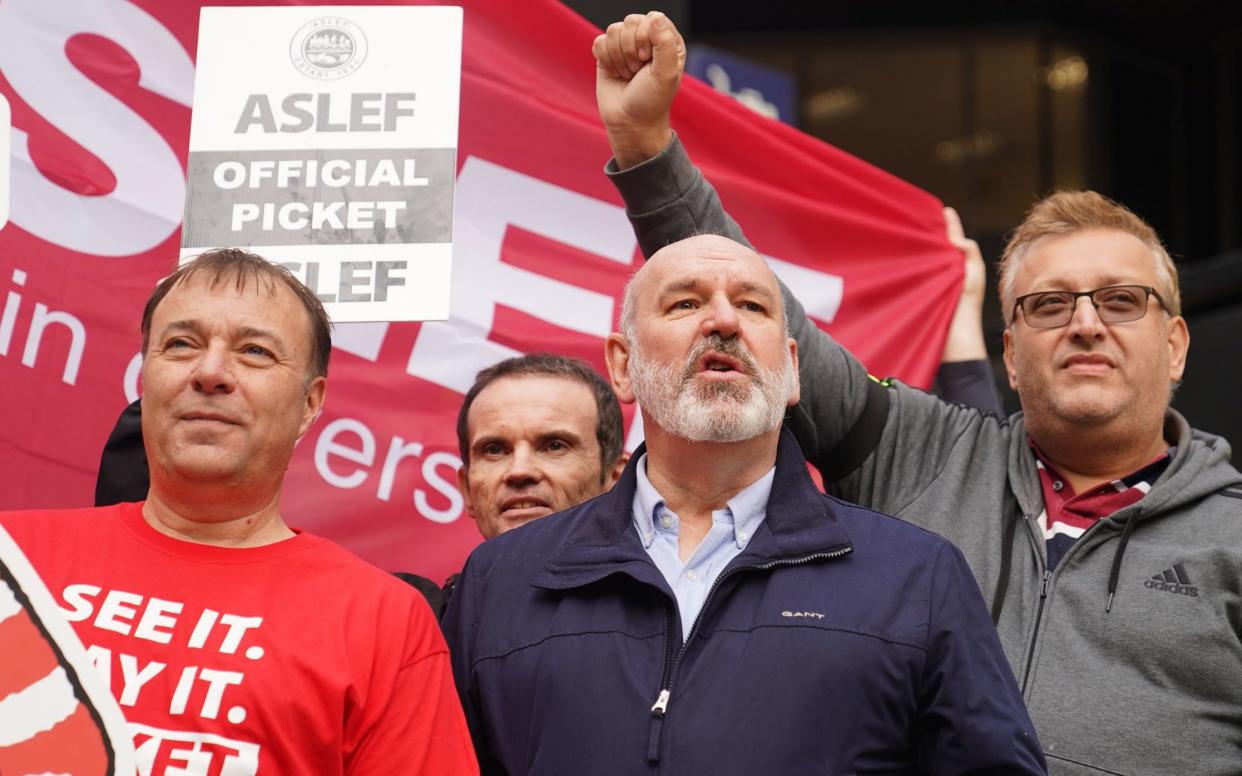Train strikes: All the rail services affected this week

Commuters face another wave of strikes and rail disruption this week, as train drivers hold rolling walkouts and a ban on overtime.
The disruption is the latest blow to travellers, who have been hit with 20 months of disruption since unions began their pay dispute with the Government and train operating companies.
In a separate dispute, RMT union members working on London Overground will strike over pay. More than 300 workers will take industrial action which includes strikes and action short of strike.
Here is everything you need to know about the latest industrial action.
When are the train strikes and which rail companies are affected?
Aslef union members will stage industrial action over five days between Tuesday, January 30 and Monday, February 5 – and will ban overtime for nine days from January 29.
Aslef had announced that train drivers on LNER will strike for five days in February in the long-running pay dispute, but these strikes have now been called off – though separate action on February 2 will still go ahead.
RMT union members on the London Overground will also take industrial action from February 19 to 20, and March 4 to 5.
In all, 16 train operators will be affected, although each will only be affected by a single day of strike action. See below which operators will be affected on different days:
Tuesday, January 30: Southeastern, Southern/Gatwick Express, Great Northern, GTR Thameslink, South Western Railway main line and depot drivers, and SWR Island Line
Wednesday, January 31: Northern Trains and TransPennine Trains
Friday, February 2: C2C, Greater Anglia, and LNER
Saturday, February 3: Avanti West Coast, East Midlands Railway, and West Midlands Trains
Monday, February 5: Chiltern, CrossCountry and GWR
Monday, February 19 to Tuesday, February 20: London Overground
Monday, March 4 to Tuesday, March 5: London Overground
CANCELLED: Monday, February 5 to Friday, February 9: LNER
I thought the train strikes were over – why are there more?
Aslef’s ongoing dispute over pay has hit travellers for the past 20 months, and train drivers represented by the Aslef union have voted overwhelmingly to continue strike action for the next six months, potentially heaping more misery on commuters in 2024.
Strikes have also been held since June 2022 by members of the Rail, Maritime and Transport (RMT) union.
However, in December they voted overwhelmingly to accept a deal to end their long-running dispute over pay and conditions. The deal will see the union suspend industrial action until at least April 2024 in exchange for a backdated pay offer which put all members in line to receive a lump sum Christmas payment of at least £1,750.
What about minimum service levels?
The Aslef rail strikes could be the first test of new regulations aimed at ensuring a minimum level of service during walkouts, set at 40pc in the transport sector.
A bill for minimum standards for passenger rail services, ambulance services and fire and rescue services was passed in July, to ensure essential services remain in place. It means employers will be able to dismiss staff who refuse to turn up to work when ordered to, while unions failing to meet minimum levels could face legal action.
However, the union has reacted to this by warning such legislation could worsen any industrial action.
Mr Whelan said: “Having seen, since this dispute started in June 2022, the resolve of our members, and the support train drivers enjoy among our passengers and the public, the Tories have now tried their old trick of changing the rules.
“When they couldn’t bully us into backing down they brought in minimum service levels – designed, effectively, to ban strikes by making them ineffective – but this new law won’t ease industrial strife. It will just make it worse.”
Advice for travelling during train strikes
National Rail has previously warned passengers to expect no services on strike days and significant disruption on the days before and after.
National Rail has recommended that passengers use its journey planning tool to check for alternative routes. Passengers should check close to the time of each strike date, it said.
Why are Aslef striking?
Aslef’s pay dispute has gone on since the first ballots were issued in June 2022, and the union has accused the Government of failing to engage to end the row.
Mr Whelan said: “We have given the Government every opportunity to come to the table but it is now a year since we had any contact from the Department for Transport. It’s clear they do not want to resolve this dispute.
“Many members have now not had a single penny increase in pay for half a decade, during which time inflation has soared and, with it, the cost of living. We didn’t ask for an increase during the pandemic, when we worked through lockdown, as key workers, risking our lives, to move goods around the country and enable NHS and other workers to get to work.
“There is, frankly, no excuse for all this nonsense. The Government and the [train operators] should do the right thing and come to the table with a realistic offer so we can end this dispute and work together to ensure a future for our railways.”
Why is the RMT union striking?
Regarding the London Overground strike, RMT general secretary Mick Lynch said: “London Overground workers do an important job delivering services for TfL and supporting passengers on journeys throughout London.
“Our members are furious that they have been given a below inflation pay offer and want to see an improvement that represents the value they bring to the company.
“If this dispute cannot be resolved then RMT is more than prepared for a sustained period of industrial action to get London Overground workers the pay rise they deserve.”


